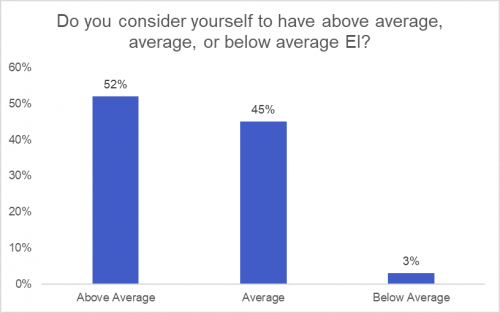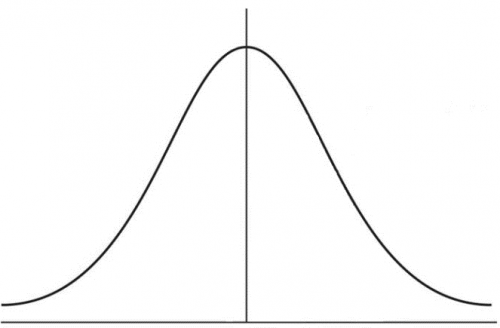How emotionally intelligent are you? It’s a simple question with a difficult answer. As it turns out, we as people are not particularly well-equipped to answer this question about ourselves.
Emotional intelligence is quickly becoming one of the most desirable qualities in the modern employee, which is why organizations are increasingly invested in seeking out employees with strong emotional intelligence. Most people can agree on an intuitive level that strong emotional intelligence helps employees be better communicators, team players, and leaders. But with fuzzy definitions of emotional intelligence swirling around, it can be especially hard to measure or quantify emotional intelligence in prospective job candidates.
What is emotional intelligence?
Emotional intelligence is the ability to perceive, use, understand, and manage emotions in yourself and others. In 1990, Salovey and Mayer formally defined emotional intelligence as the intelligent use of emotions and emotional information. In this manner, emotional intelligence is akin to cognitive ability. It’s the use of the brain to take an input – emotions in yourself or others – and intelligently interpret and respond to that input.
Just like any other ability in the world, some people excel at it, and others find it to be an area that needs improvement. But when it comes to knowing where we stand, we’re not great at evaluating our own level of ability in this area.
Gauging our own emotional intelligence is a challenge
This became immensely clear in a webinar we recently conducted about emotional intelligence. During the webinar, we polled the audience with the following question. Do you consider yourself to have:
A. Above average emotional intelligence
B. Average emotional intelligence
C. Below average emotional intelligence
After the results came in, we got this spread of responses:

The majority of people (52%) rated themselves as having above average intelligence, while just 3% rated themselves as below average. Now, we all understand averages. Typically, when you measure a quality across a large group of people, the distribution should take the form of a normal curve, which looks something like this:

The line in the middle represents the average. Most people end up being close to average, while increasingly fewer people achieve the highest or lowest points on the spectrum. But the important part is that, around this invisible “average” line, 50% of people end up on the “above average” side to the right, and 50% end up on the “below average” side to the left.
Yet our results from the poll don’t reflect this reality. Just 3% said they thought they were below average. Either our listeners that day were especially emotionally intelligent, or the results are inaccurate. Unfortunately, the latter is more likely.
So what went wrong here? Why did the results from the poll not match what we’d expect in reality? Well, it’s because we asked!
We tend to think we’re above average.
This is part of a common phenomenon called the Superiority Illusion, where people tend to think they are above average in most tasks. And it’s not just on emotional intelligence. People tend to overestimate their abilities when compared to their peers on just about everything, from driving ability to IQ. If you ask someone what their ability is compared to the rest of the population, they are disproportionately more likely to think they are above average.
When it comes to measuring emotional intelligence in the context of hiring, this becomes an issue. If you’d like to determine how emotionally intelligent a job candidate is, it is not enough to simply ask. For example, you could ask an interview question about someone’s emotional intelligence, but it would be challenging to objectively assess someone’s emotional intelligence based on their response.
Similarly, you could give an assessment that asks candidates to rate their own emotional intelligence, but you will run into the same problem that we experienced from our poll. The answers simply aren’t reliable. And while the Superiority Illusion suggests that most people are likely to overestimate their abilities, a small group will also underestimate their abilities, rendering the result effectively useless.
Measure the ability
So how can we measure EI in a way that is reliable and accurate? It goes back to the definition of EI. Emotional intelligence is the ability to perceive, use, understand, and manage emotions in yourself and others. The key word here is ability. The best way to objectively measure an ability is through an ability-based assessment.
In practice, this involves immersing someone in a series of EI challenges that has them demonstrate their abilities in ways that reflect the challenges they’ll encounter on the job.
Criteria developed an ability-based emotional intelligence assessment through which candidates can demonstrate their ability to accurately perceive and understand emotions. The assessment, called Emotify, calls upon the seven universal emotions to take candidates through three engaging assessments in just 20 minutes.
The first assessment evaluates someone’s ability to correctly identify emotions in facial expressions. It shows a series of faces that are expressing an emotion and asks the candidate to say whether or not that emotion is accurate.
The second assessment asks candidates to correctly identify emotions and emotional reactions in different situations. This assessment gets candidates to demonstrate their understanding of how different situations could lead to different emotions.
The third assessment asks candidates to read short scenarios within a connected narrative that involve different emotions, and select the best response for managing the emotion involved.
One of the biggest benefits of using an ability-based assessment to gauge EI is that it’s more accurate and objective. But another big benefit is that it allows each candidate to demonstrate their ability in a fair and less biased way. Emotional intelligence isn’t just hard to gauge in ourselves. It’s hard to gauge in others. Especially in an interview, which we all know can lead to unconscious bias, it can be nearly impossible for a hiring manager to objectively evaluate each candidate’s emotional intelligence from an hour-long conversation. An ability-based assessment gives each candidate the opportunity to demonstrate their abilities in this area. (Plus, candidates enjoy the assessment, with 84% of those who completed Emotify saying they would recommend employers use the assessment in recruitment).
Learn more about Emotify here.




